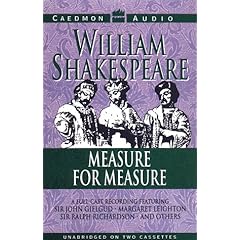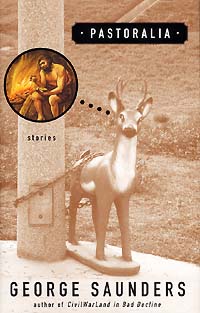
Or "Sexual Perversity in Vienna."
Claudio knocked up his sort-of-officially-but-unofficially-in-the-eyes-of-the-law wife. His sister Isabella is one day away from being a nun. Angelo, the new sheriff in town, decides that fornicators should be put to death. He starts with Claudio. Isabella is not so happy about this. She tries to change Angelo's mind. He agrees to help her out if she sleeps with him. The rest unfolds with all those classic Shakespeare plot devices - a duke in disguise, a bumbling malaprop-dropping constable, some whores, a beheading.
Measure for Measure is the last comedy Shakespeare wrote, and it's fascinating to see how much the genre evolves from the earlier comedies like, say, Comedy of Errors. It's a tough play. After reading it, I get why it's not produced very often. I mean, it's reeeeeally tough in that nothing-really-adds-up kind of way. But that's what makes it so compelling. It doesn't tie up neatly with everything all happy clappy at the end, and we're left with a lot of questions. I love the way that, as his work progresses, Shakespeare challenges his audiences, holding the mirror up to their hypocrisy and shaky morals. In the right hands, this would be an unbelievably powerful show to see staged. In the wrong hands, it would be the worst ever.














(1).jpg)





